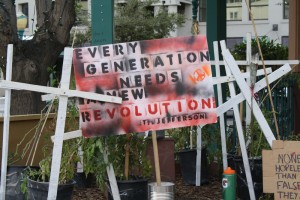Recession strikes hard in a historic shopping area
|
EL CENTRO, Calif.—Only fragments of history were left on the floor of Cathy Dobson’s antique store here following the April 2010 7.2-magnitude earthquake. Dobson said she was in shock to see that fine china, glass bookcases, and $300 lamps, among other beloved treasures, had become mere scraps of debris to be fed to the dumpster. Business owners in the historic downtown district suffered losses in the hundreds of thousands to damaged merchandise, store closures, and mandatory moving expenses. But the earthquake was only the latest in a series of jolts to rock the 100-year-old downtown area as competition from online retail and a new regional shopping mall wooed away the local customer base. And, then the recession hit. “For about a year, between the earthquake and the economy, business was terrible,” said Dobson, who owns Dobson’s Antiques on Main St. in downtown El Centro. “There’s a lot of empty buildings and there’s more so now than there was before the earthquake.”
Dobson is one of about 10,000 independent small business owners in the Imperial Valley and one in nearly 28 million nationwide struggling to win back the loyalty of local consumers. But, even a national push to send consumers to Main Street America’s independently owned businesses has not paid off locally.
